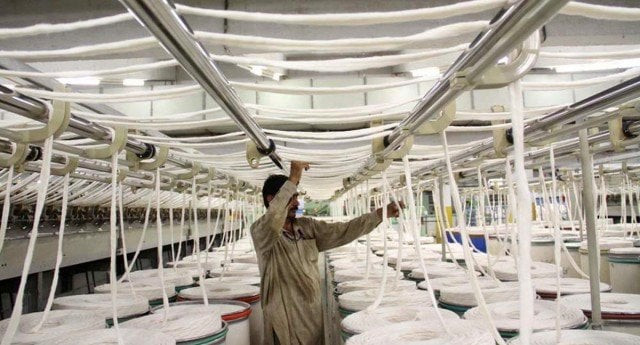Textile policy, duty drawback to continue
PM aide stresses both measures will lift exports; assures industry of resolving problems

The Ministry of Commerce has not withdrawn the Textile and Apparel Policy 2020-25 and the Drawback of Local Taxes and Levies (DLTL) scheme will continue in future to enhance export of value-added textile, remarked Adviser to Prime Minister on Commerce Abdul Razak Dawood.
Speaking at a meeting arranged by the Pakistan Readymade Garments Manufacturers and Exporters Association (PRGMEA) on Monday, the adviser assured businessmen that their problems would be taken up with Prime Minister Imran Khan and in the federal cabinet.
“The government will consider and resolve all issues,” he said. “Textile sector is playing a major role in stabilising the national economy, therefore, the government is striving to address its issues on a priority basis.”
Highlighting the positive outcome of the “Make in Pakistan” strategy, the adviser pointed out that investment of billions of rupees was in the pipeline and new textile units were expected to be established.
“Such industrial concerns will help enhance the export capacity and create hundreds of thousands of jobs,” he said.
The government has reversed the de-industrialisation process and “Pakistan is now on the path of industrial growth.” In August 2020, the government had announced the “Make in Pakistan” policy to promote export-oriented industrialisation in the country, Dawood said.
Under the policy, the government has reduced duties on hundreds of tariff lines including the raw material for industries to make their products competitive.
“In the past, there was no focus on diversification of exports, but now it is happening,” he said.
In the past three years, exports of non-traditional products to the traditional markets increased significantly as the government accelerated its endeavours to further push diversification of exports, he pointed out.
The PM aide said that surging imports posed a threat to the trade deficit and to tackle the issue, the government was in the process of identifying and enhancing tariffs on a few items to discourage their import.
He reaffirmed that the government had made all-out efforts to ensure that Pakistan continue to enjoy the GSP Plus facility and voiced hope that the country would secure an extension in the facility from the European Union.
Earlier, PRGMEA Regional Chairman Sheikh Luqman Amin urged the adviser to abolish all duties and taxes and permit duty-free import of cotton yarn, which was the basic raw material for the value-added textile sector.
Participants of the meeting called on the government to ban export of cotton yarn in order to ensure its availability to the export sector and enable it to meet orders timely and without any hassle.
They asked the government to consider allowing import of cotton yarn from India through Wagah border because good quality yarn was not available in Pakistan and its prices were soaring.
They called for fixing special tariffs at 7.5 cents for electricity and $6.5 per mmbtu for gas for at least three years coupled with provision of uninterrupted electricity and gas for delivering export orders.
An industry official said that Prime Minister Imran Khan’s plans for industrialisation, increasing exports, creating trade surplus, generating employment opportunities and earning more foreign exchange could only be achieved when cotton yarn availability and uninterrupted supply of utilities were ensured.
Published in The Express Tribune, January 11th, 2022.
Like Business on Facebook, follow @TribuneBiz on Twitter to stay informed and join in the conversation.



















COMMENTS
Comments are moderated and generally will be posted if they are on-topic and not abusive.
For more information, please see our Comments FAQ